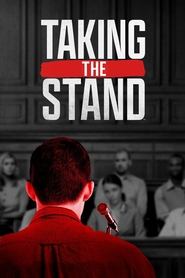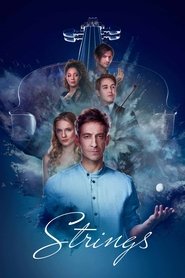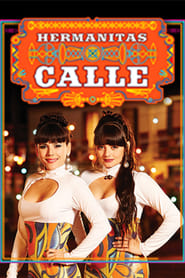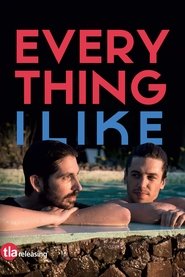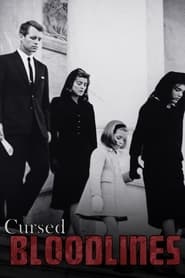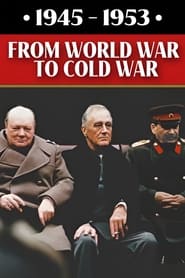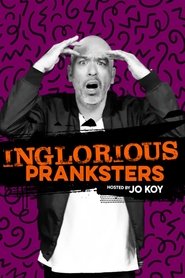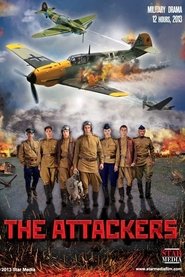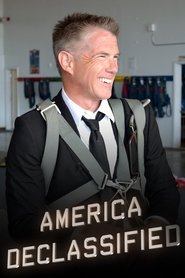Top Rated Romance TV Series on Tubi TV - Page 111
-
Taking the Stand
2022
Taking the Stand
2022
star 7The story of crimes from the unique lens of the accused as they take the witness stand. -
What Went Wrong: Countdown To Catastrophe
2019
star 7.2A two season series with 12 episodes that tell the in-depth story of high-profile catastrophic events while explaining the engineering failures that reveal what went wrong. -
Strings
2021
-
Very Private Lesson
1998
Very Private Lesson
1998
star 3.2High school teacher Tairaku’s chances of getting a date with his colleague start to tank when his new transfer student Aya develops a crush on him. To make matters worse, Aya’s yakuza boss dad expects the meek Tairaku to protect her from the school’s perverted student body all the way until graduation. -
Las Hermanitas Calle
2015
-
Catch! Teenieping
2020
Catch! Teenieping
2020
star 7Set free on Earth, fairies with magical powers begin influencing people's emotions. Now, it's up to a princess from a faraway kingdom to stop them! -
Everything I Like
2019
Everything I Like
2019
star 5Though he’s always considered himself straight, Daniel begins to develop feelings for his alluring new co-worker Javier. Once he admits to his bisexuality, he enters a new world of potential partners. All the while, however, he’s looking to work up the courage to tell Javier how he really feels. -
Kirstie's Handmade Christmas
2014
star 6Kirstie provides a flurry of jovial festive fun - with enough competitions, makes, decorations, gifts, food and drink to inspire every kind of crafter. -
Cursed Bloodlines
2018
Cursed Bloodlines
2018
star 7Cursed Bloodlines explores the dark histories of prominent families that appeared to have had it all. Yet generations of family tragedy and misfortune suggest that not even money or power could protect these doomed dynasties. From royal families spanning centuries, to billionaire business tycoons and their clans, Cursed Bloodlines examines real life historical instances of tragically ill-fated bloodlines. Could the source of their misfortune be pride, wealth, or genetics? Or could it be something much more sinister? -
1945-1953: From World War to Cold War
2017
star 8.5At the outset of the Yalta Conference on February 4, 1945, the «Big Three» were all optimistic: victory was in no doubt, and the accord that they had achieved seemed likely to preserve the values they had fought for. However, in just a few months, nothing would remain of this agreement apart from irreconcilable differences. United in war, the Allies would reveal themselves as divided and rivals in peace. How can such a rapid failure of a real effort at entente be explained? With the Yalta Conference in 1945 to 1953, discover a new world order drawn up by three men, looking for a lasting peace... that would lead inevitably to the Cold War. Combining archive footage, photographs, original letters and unique testimonies, these two episodes revisit this crucial period in History. A full immersion into postwar years and an emerging new world order. -
RISKY
2021
RISKY
2021
star 6.2Mika Kuroda is engaged to Toru Sakurai, a high-spec boy who works for a trading company. She pushes troublesome jobs to colleagues saying "I'm about to get married", and the girls in the company dislike it. Mitsutoshi Asai, a part-time job, is a good young man who helps with work without making an unpleasant face even when he sees Mika. One day, a message arrives from an eerie account to Mika, a hated girl in the company. Starting with that, mysterious events begin to occur around her. Mika receives a direct message as if her behaviour was being monitored, and a phone call at work calling her former fiancée "Hirose Kanata". On the other hand, her fiancé Toru suddenly approaches Hinata with a certain kick and has a relationship. But that was just the beginning of Hinata's horrifying revenge plan. A terrifyingly addictive revenge drama that takes place between five men and women. Gradually, the real faces and relationships of the mysterious characters are revealed. -
Deadly Disasters
2019
Deadly Disasters
2019
star 6.8Deadly Disasters explores some of the most terrifying and destructive natural disasters to ever strike the planet, uncovering fascinating new details and packed with jaw-dropping footage. -
Kirstie And Phil's Love It Or List It
2015
star 7.5Phil Spencer and Kirstie Allsopp go head to head as they battle it out to convince homeowners to either sell their home or refurbish it. -
Barbelle
2017
Barbelle
2017
star 7.8Barbelle follows the story of a newly famous Toronto based pop-star duo, Veronica Vale and Alice O'Hara, whose meteoric rise to stardom has led to a blitzkrieg on their personal lives. -
Megapolis: The Ancient World
2020
star 6.8Athens, Alexandria, Tikal and Rome: these legendary cities are some of the world's most famous archaeological sites. And yet, they still have not revealed all their secrets. The ambition of this series is to resuscitate the first megalopolises of universal history. -
Phoenix
2020
Phoenix
2020
star 5Ji Eun is the daughter of a wealthy chaebol family. She is bright, humorous, beautiful, and smart. Ji Eun meets Se Hoon, who runs a small furniture workshop. Unlike Ji Eun, Se Hoon comes from a poor family background. He was once the top student at a prestigious university, but he had to drop out due to his sick mother. Nevertheless, Ji Eun falls deeply in love with Se Hoon. She confesses her feelings to him. Se Hoon is also in love with Ji Eun, but he turns her down due to the extreme differences in their backgrounds. Eventually, Se Hoon is unable to bury his feelings any longer and they decide to marry. -
The Attackers
2013
The Attackers
2013
star 7.2The Eastern Front, 1943. Two Soviet pilots, straight out of training, join a veteran fighter squadron on the front line. -
America Declassified
2013
America Declassified
2013
star 7.3Conspiracy theories, mysteries, secrets and the forbidden are probed with a fresh set of eyes as "America Declassified" delves into the hidden side of the United States. Investigators including former CIA officer Mike Baker, geoscientist and radiological engineering consultant Ben McGee, and investigative reporter Michele McPhee go on location to examine stories and events using new evidence, unprecedented access and never-before-heard-from witnesses. The hourlong episodes incorporate scientific methods, forensics and state-of-the-art surveillance technology to gain new insight into John F. Kennedy's assassination, the D.B. Cooper hijacking case, most-wanted mobster Whitey Bulger's life on the lam, and a rumored doomsday bunker under a major U.S. airport, among other stories. Locals and eyewitnesses also share their accounts of strange sightings, weird goings-on and unexplained phenomena. -
The Menendez Murders: Erik Tells All
2017
star 6.8For the first time in over a decade, Erik Menendez opens up with his most in-depth interview to date in a new documentary series that re-examines one of the most fascinating true crime tragedies of the past century through the lens of one of the convicted killers. This riveting series includes extensive phone interviews with Erik as well as rare emotional footage, never-before-seen photos and new interviews with prosecutors, law enforcement, close family, friends and medical experts that chronicle the story you thought you knew.
 Netflix
Netflix
 Amazon Prime Video
Amazon Prime Video
 Apple iTunes
Apple iTunes
 Apple TV Plus
Apple TV Plus
 Disney Plus
Disney Plus
 Google Play Movies
Google Play Movies
 Paramount Plus
Paramount Plus
 Hulu
Hulu
 HBO Max
HBO Max
 YouTube
YouTube
 fuboTV
fuboTV
 Peacock
Peacock
 Peacock Premium
Peacock Premium
 Amazon Video
Amazon Video
 The Roku Channel
The Roku Channel
 AMC+
AMC+
 Kocowa
Kocowa
 Hoopla
Hoopla
 The CW
The CW
 Vudu
Vudu
 Starz
Starz
 Showtime
Showtime
 PBS
PBS
 Pantaflix
Pantaflix
 FXNow
FXNow
 Tubi TV
Tubi TV
 Kanopy
Kanopy
 Comedy Central
Comedy Central
 Crunchyroll
Crunchyroll
 Microsoft Store
Microsoft Store
 Redbox
Redbox
 Sun Nxt
Sun Nxt
 ABC
ABC
 DIRECTV
DIRECTV
 Crackle
Crackle
 Fandor
Fandor
 Plex
Plex
